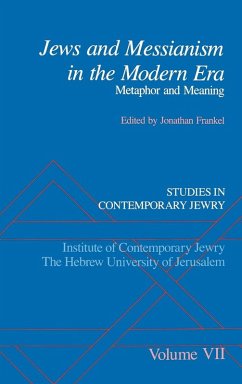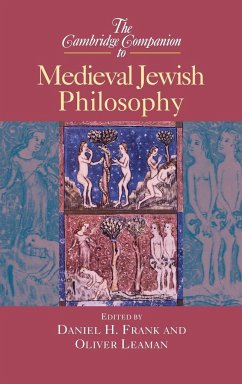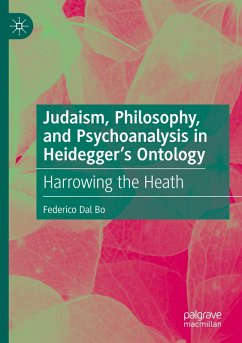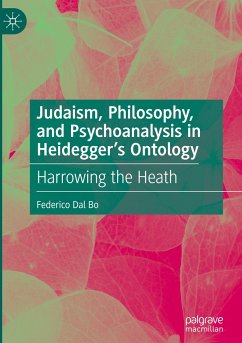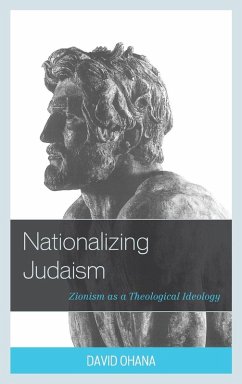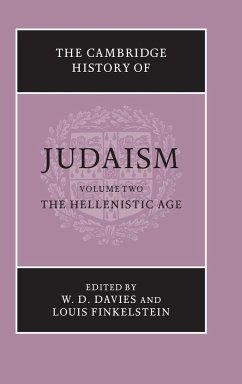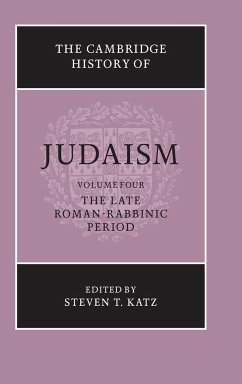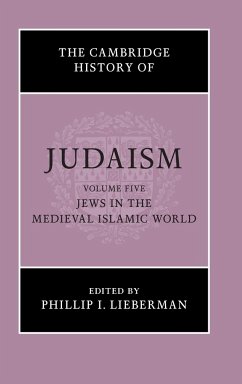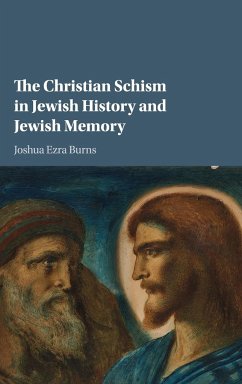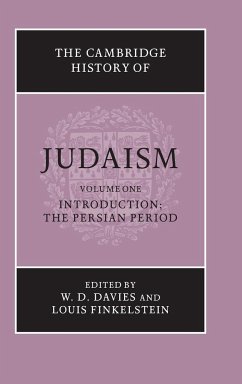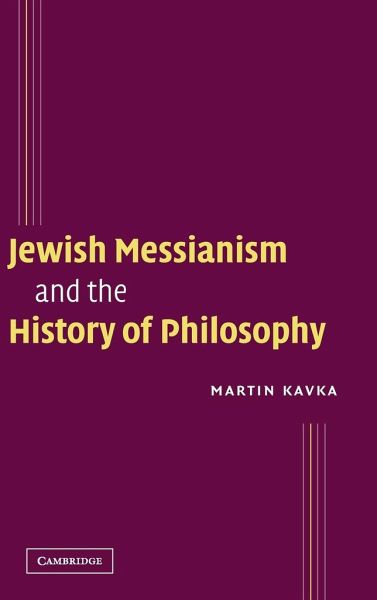
Jewish Messianism and the History of Philosophy
Versandkostenfrei!
Versandfertig in 1-2 Wochen
110,99 €
inkl. MwSt.
Weitere Ausgaben:

PAYBACK Punkte
55 °P sammeln!
Jewish Messianism and the History of Philosophy contests the ancient opposition between Athens and Jerusalem by retrieving the concept of meontology - the doctrine of nonbeing - from the Jewish philosophical and theological tradition. For Emmanuel Levinas, as well as for Franz Rosenzweig, Hermann Cohen and Moses Maimonides, the Greek concept of nonbeing (understood as both lack and possibility) clarifies the meaning of Jewish life. These thinkers of 'Jerusalem' use 'Athens' for Jewish ends, justifying Jewish anticipation of a future messianic era as well as portraying the subjects intellectual...
Jewish Messianism and the History of Philosophy contests the ancient opposition between Athens and Jerusalem by retrieving the concept of meontology - the doctrine of nonbeing - from the Jewish philosophical and theological tradition. For Emmanuel Levinas, as well as for Franz Rosenzweig, Hermann Cohen and Moses Maimonides, the Greek concept of nonbeing (understood as both lack and possibility) clarifies the meaning of Jewish life. These thinkers of 'Jerusalem' use 'Athens' for Jewish ends, justifying Jewish anticipation of a future messianic era as well as portraying the subjects intellectual and ethical acts as central in accomplishing redemption. This book envisions Jewish thought as an expression of the intimate relationship between Athens and Jerusalem. It also offers new readings of important figures in contemporary Continental philosophy, critiquing previous arguments about the role of lived religion in the thought of Jacques Derrida, the role of Plato in the thought of Emmanuel Levinas and the centrality of ethics in the thought of Franz Rosenzweig.





